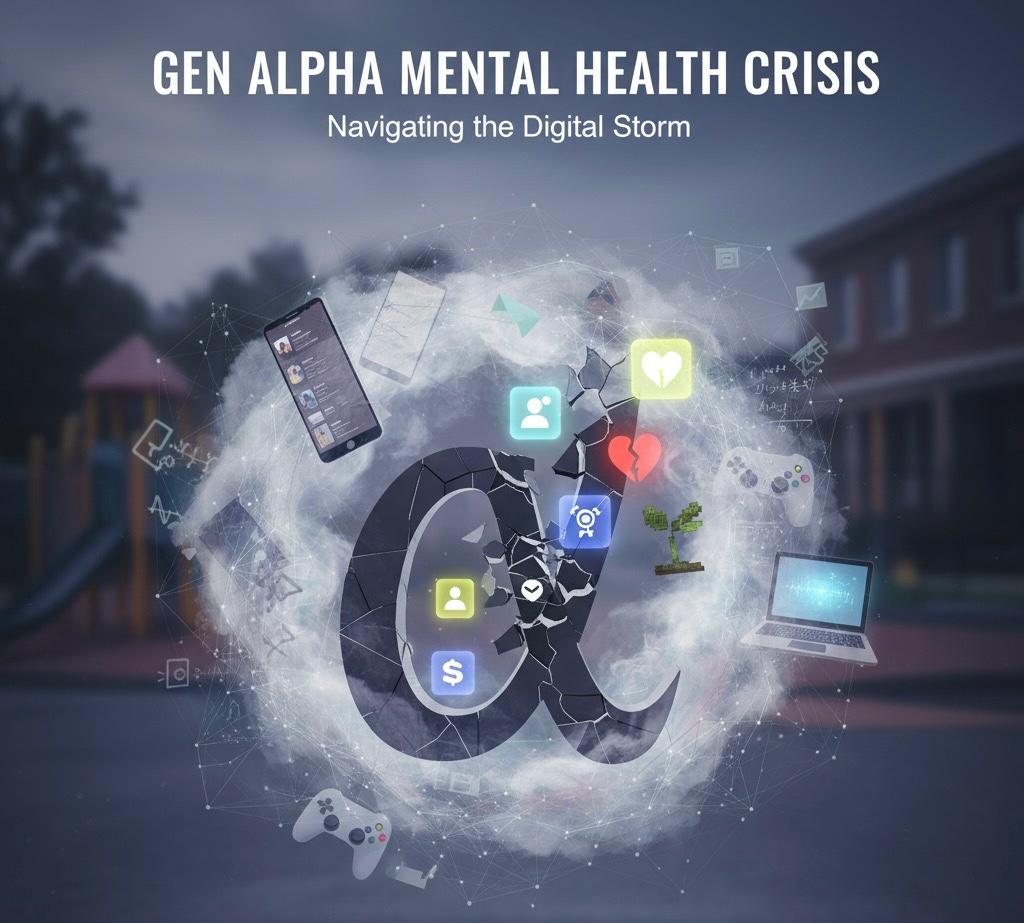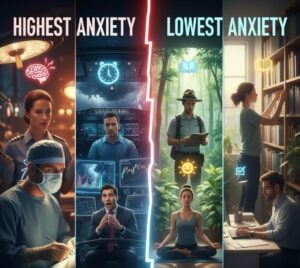Antidepressants are a class of medications commonly used to treat depression and other mood disorders. These medications can be life-changing for many individuals, helping to alleviate symptoms, improve quality of life, and prevent relapse. This article explores the different types of antidepressants, their mechanisms of action, benefits, side effects, and the importance of medical supervision during treatment.
Types of Antidepressants
There are several classes of antidepressants, each working through different mechanisms to alleviate symptoms of depression. The main types include:
Selective Serotonin Reuptake Inhibitors (SSRIs)
SSRIs are the most commonly prescribed antidepressants. They work by increasing the levels of serotonin in the brain, a neurotransmitter associated with mood regulation. Common SSRIs include fluoxetine (Prozac), sertraline (Zoloft), and citalopram (Celexa).
Serotonin-Norepinephrine Reuptake Inhibitors (SNRIs)
SNRIs increase the levels of both serotonin and norepinephrine, another neurotransmitter involved in mood and stress response. Examples of SNRIs include venlafaxine (Effexor) and duloxetine (Cymbalta).
Tricyclic Antidepressants (TCAs)
TCAs are an older class of antidepressants that work by blocking the reuptake of serotonin and norepinephrine. They are generally considered effective but are often associated with more side effects. Examples include amitriptyline (Elavil) and nortriptyline (Pamelor).
Monoamine Oxidase Inhibitors (MAOIs)
MAOIs inhibit the activity of monoamine oxidase, an enzyme that breaks down neurotransmitters like serotonin and norepinephrine. While effective, MAOIs can have significant dietary and drug interactions. Examples include phenelzine (Nardil) and tranylcypromine (Parnate).
Atypical Antidepressants
This category includes various antidepressants that do not fit neatly into the other categories. Examples include bupropion (Wellbutrin), which affects dopamine and norepinephrine, and mirtazapine (Remeron), which affects multiple neurotransmitter systems.
Mechanisms of Action
Antidepressants primarily work by altering the balance of neurotransmitters in the brain, which are chemicals that transmit signals between nerve cells. By increasing the levels of specific neurotransmitters such as serotonin, norepinephrine, and dopamine, these medications help to improve mood, reduce anxiety, and enhance overall emotional well-being (Stahl, 2013).
Serotonin
Serotonin is a key neurotransmitter that influences mood, emotion, and sleep. By preventing the reuptake of serotonin into neurons, SSRIs and SNRIs increase its availability in the brain, which can help alleviate symptoms of depression (Hirschfeld, 2000).
Norepinephrine
Norepinephrine affects attention, response to stress, and energy levels. SNRIs and TCAs increase norepinephrine levels, which can improve mood and reduce feelings of fatigue and lethargy (Feighner, 1999).
Dopamine
Dopamine plays a role in motivation, reward, and pleasure. Atypical antidepressants like bupropion increase dopamine levels, which can help address symptoms such as low motivation and anhedonia (the inability to feel pleasure) (Stahl, 2013).
Benefits of Antidepressants
Antidepressants can offer significant benefits for individuals with depression, including:
Symptom Relief
Antidepressants can help reduce the core symptoms of depression, such as persistent sadness, loss of interest in activities, changes in appetite and sleep, and difficulty concentrating (Kupfer et al., 2012).
Improved Quality of Life
By alleviating depressive symptoms, antidepressants can improve overall quality of life, enabling individuals to function better in their personal, social, and professional lives (Cipriani et al., 2018).
Prevention of Relapse
Long-term use of antidepressants can help prevent relapse in individuals with recurrent depression. Maintenance therapy can be particularly important for those with a history of multiple depressive episodes (Geddes et al., 2003).
Side Effects and Considerations
While antidepressants can be highly effective, they also come with potential side effects. It is important to be aware of these and to work closely with a healthcare provider to manage them.
Common Side Effects
Common side effects of antidepressants can include nausea, weight gain, sexual dysfunction, insomnia, and dry mouth. These side effects often vary depending on the specific medication and individual factors (Ferguson, 2001).
Serious Side Effects
In some cases, antidepressants can cause more serious side effects, such as increased suicidal thoughts and behaviours, particularly in young adults and adolescents. It is crucial for individuals starting antidepressants to be closely monitored by their healthcare provider (Hammad et al., 2006).
Discontinuation Syndrome
Abruptly stopping antidepressant medication can lead to discontinuation syndrome, characterised by symptoms such as dizziness, irritability, nausea, and flu-like symptoms. Gradual tapering under medical supervision is recommended to avoid these effects (Warner et al., 2006).
The Risks of Taking Antidepressants Without Depression
Side Effects and Adverse Reactions
Taking antidepressants without a clinical need can lead to various side effects and adverse reactions. Common side effects include nausea, weight gain, sexual dysfunction, insomnia, and dry mouth (Ferguson, 2001). These side effects can occur regardless of whether an individual has depression and may be particularly pronounced in those who do not need the medication.
Serotonin Syndrome
One of the most serious risks of taking antidepressants, especially SSRIs and SNRIs, is serotonin syndrome. This condition occurs when there is an excessive accumulation of serotonin in the brain, leading to symptoms such as agitation, confusion, rapid heart rate, dilated pupils, muscle rigidity, and in severe cases, seizures or death (Boyer & Shannon, 2005).
Emotional Blunting
Antidepressants, particularly SSRIs, can cause emotional blunting, where individuals feel a reduction in emotional intensity. For those without depression, this side effect can interfere with the normal experience of emotions, reducing the ability to feel joy, sadness, or other emotional responses (Price et al., 2009).
Dependency and Withdrawal
Although antidepressants are not considered addictive in the same way substances like opioids or benzodiazepines are, individuals can develop a dependency. Stopping antidepressants abruptly can lead to discontinuation syndrome, which includes symptoms such as dizziness, irritability, nausea, and flu-like symptoms (Warner et al., 2006). This can occur even in individuals without depression who have taken the medication for a prolonged period.
Impact on Cognitive Function
There is evidence suggesting that long-term use of antidepressants can affect cognitive function. Some studies have reported that antidepressants can impair cognitive processes such as memory and attention in individuals without depression (Goren et al., 2006).
Masking Underlying Issues
Using antidepressants without a diagnosis of depression can mask underlying psychological or emotional issues that require different types of treatment, such as therapy or counselling. Relying on medication without addressing the root cause of distress can prevent individuals from seeking appropriate help (Cuijpers et al., 2014).
Importance of Medical Supervision
Proper Diagnosis
Accurate diagnosis by a qualified healthcare professional is essential before starting any medication, including antidepressants. Depression and other mood disorders have specific diagnostic criteria that need to be met to justify the use of these medications (American Psychiatric Association, 2013).
Monitoring and Adjustments
Even for those with a legitimate need for antidepressants, ongoing medical supervision is crucial to monitor the effectiveness of the medication, manage side effects, and make necessary adjustments. This ensures the treatment is both safe and effective (Thase, 2006).
Conclusion
Antidepressants are a critical tool in the treatment of depression, offering relief from symptoms and improving quality of life for many individuals. Understanding the different types of antidepressants, their mechanisms of action, and the importance of medical supervision can help individuals make informed decisions about their treatment. Collaboration with healthcare providers is essential to maximise the benefits and manage any potential side effects effectively. Antidepressants can provide significant benefits for individuals diagnosed with depression and other mood disorders, but taking these medications without a clinical need poses several risks. Side effects, serotonin syndrome, emotional blunting, dependency, cognitive impairment, and masking underlying issues are potential dangers. It is crucial to seek medical advice and undergo proper diagnosis and monitoring to ensure the safe and effective use of antidepressants.
References
- Cipriani, A., Furukawa, T. A., Salanti, G., Chaimani, A., Atkinson, L. Z., Ogawa, Y., … & Geddes, J. R. (2018). Comparative efficacy and acceptability of 21 antidepressant drugs for the acute treatment of adults with major depressive disorder: a systematic review and network meta-analysis. The Lancet, 391(10128), 1357-1366.
- Cuijpers, P., Noma, H., Karyotaki, E., Cipriani, A., & Furukawa, T. A. (2020). Effectiveness and acceptability of cognitive behavior therapy delivery formats in adults with depression: a network meta-analysis. JAMA Psychiatry, 77(7), 700-707.
- Feighner, J. P. (1999). Mechanism of action of antidepressant medications. Journal of Clinical Psychiatry, 60(Suppl 4), 4-11.
- Ferguson, J. M. (2001). SSRI Antidepressant Medications: Adverse Effects and Tolerability. Primary Care Companion to the Journal of Clinical Psychiatry, 3(1), 22-27.
- Goren, J. L., Tucker, W. E., & Lader, M. H. (2006). Antidepressants and cognitive function: A review. Journal of Clinical Psychopharmacology, 26(2), 114-120.
- Price, J., Cole, V., & Goodwin, G. M. (2009). Emotional side-effects of selective serotonin reuptake inhibitors: qualitative study. British Journal of Psychiatry, 195(3), 211-217.
- Geddes, J. R., Carney, S. M., Davies, C., Furukawa, T. A., Kupfer, D. J., Frank, E., & Goodwin, G. M. (2003). Relapse prevention with antidepressant drug treatment in depressive disorders: a systematic review. The Lancet, 361(9358), 653-661.
- Hammad, T. A., Laughren, T., & Racoosin, J. (2006). Suicidality in pediatric patients treated with antidepressant drugs. Archives of General Psychiatry, 63(3), 332-339.
- Hirschfeld, R. M. A. (2000). History and evolution of the monoamine hypothesis of depression. Journal of Clinical Psychiatry, 61(Suppl 6), 4-6.
- Kupfer, D. J., Frank, E., & Phillips, M. L. (2012). Major depressive disorder: new clinical, neurobiological, and treatment perspectives. The Lancet, 379(9820), 1045-1055.
- Stahl, S. M. (2013). Stahl’s Essential Psychopharmacology: Neuroscientific Basis and Practical Applications (4th ed.). Cambridge University Press.
- Thase, M. E. (2006). Treatment-resistant depression: prevalence, risk factors, and treatment strategies. Journal of Clinical Psychiatry, 67(Suppl 6), 5-10.
- Warner, C. H., Bobo, W., Warner, C., Reid, S., & Rachal, J. (2006). Antidepressant discontinuation syndrome. American Family Physician, 74(3), 449-456.
How to get in touch
If you or your patient/NDIS clients need immediate mental healthcare assistance, feel free to get in contact with us on 1800 NEAR ME – admin@therapynearme.com.au.







